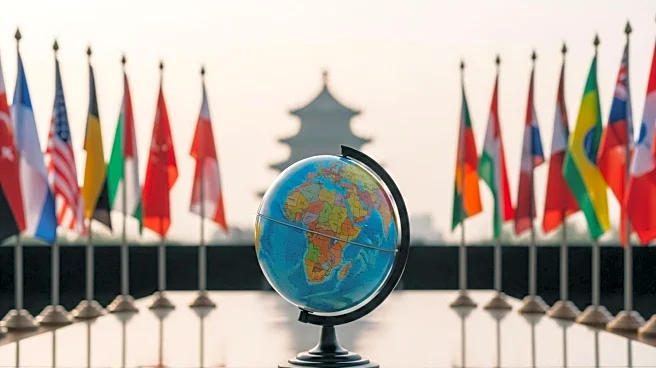What's Happening?
Russian President Vladimir Putin arrived in Tianjin, China, to participate in the Shanghai Cooperation Organization (SCO) summit. The summit, which is a significant event on China's diplomatic calendar, aims to discuss the future of a Beijing-led bloc that seeks to provide an alternative to the U.S.-dominated world order. Other notable attendees include Indian Prime Minister Narendra Modi, Iranian President Masoud Pezeshkian, and Pakistani Prime Minister Shehbaz Sharif. The gathering, planned well in advance, is taking place amidst rapidly evolving global events.
Why It's Important?
The SCO summit represents a strategic effort by China and its allies to challenge the existing global power dynamics dominated by the United States. By bringing together leaders from Russia, India, Iran, and Pakistan, the summit underscores the growing influence of these nations in international affairs. The discussions and agreements made during this summit could have significant implications for global trade, security, and diplomatic relations, potentially shifting alliances and economic partnerships away from Western-centric models.
What's Next?
The outcomes of the SCO summit could lead to new diplomatic and economic initiatives among member countries, potentially altering existing geopolitical alliances. Observers will be watching for any announcements regarding trade agreements, security collaborations, or joint statements that may signal a shift in international relations. The summit's conclusions could also influence future policy decisions in member countries, impacting global markets and political strategies.
Beyond the Headlines
The summit highlights the ongoing geopolitical shifts as countries like China and Russia seek to expand their influence and counterbalance Western power. This development raises questions about the future of international cooperation and the potential for new global conflicts or collaborations. The ethical and cultural implications of such shifts may affect global governance and the balance of power in international institutions.












